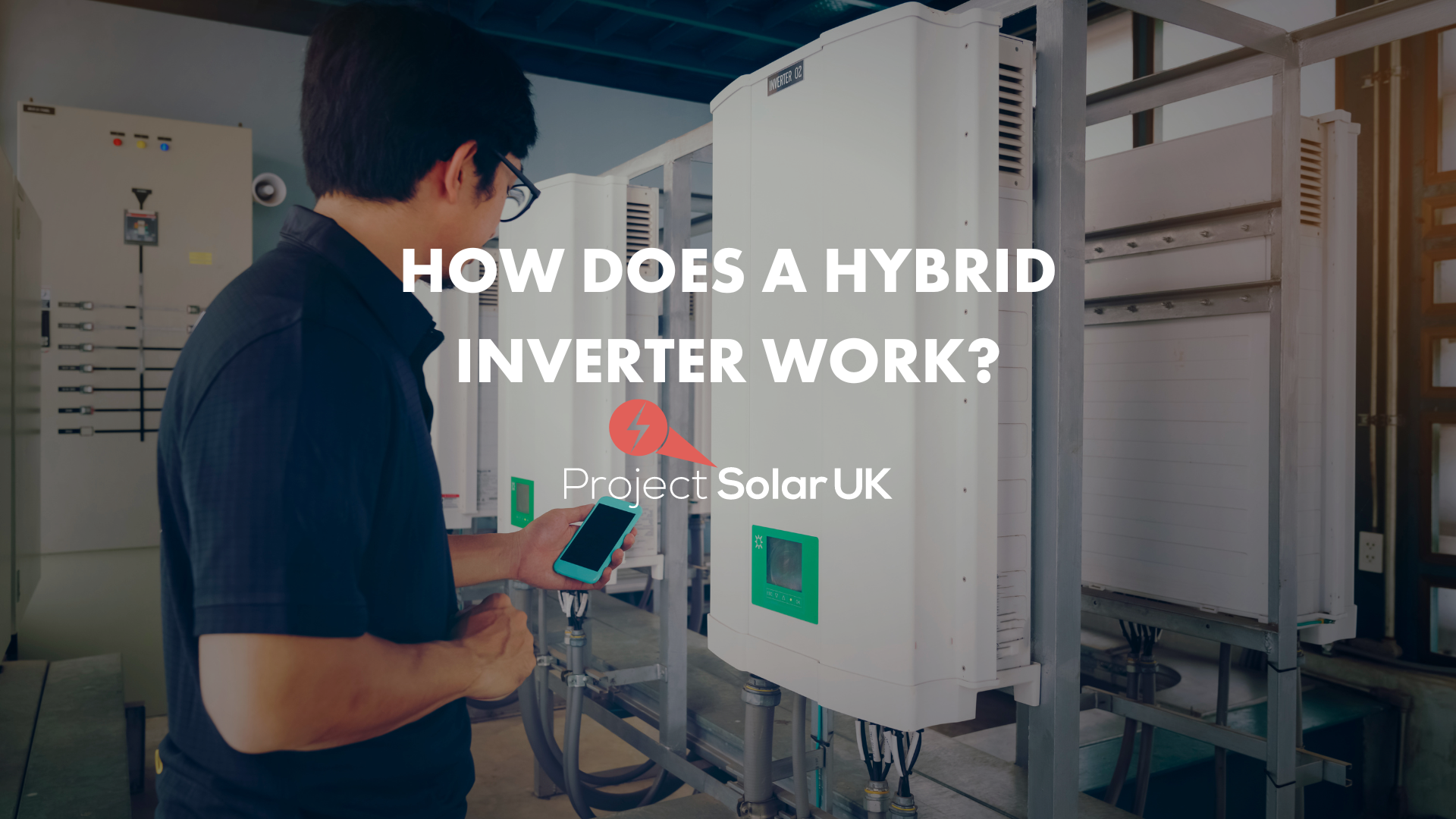How Does A Hybrid Inverter Work?

Installing a photovoltaic (PV) system can bring numerous short-term and long-term advantages. From enhancing energy independence to reducing utility bills and taking advantage of government incentives, solar panels represent a smart investment for any homeowner. But how exactly do they function? Specifically, what role does a hybrid inverter play? Think of it as the brain of your PV system—it's responsible for transforming direct current (DC) electricity generated by solar panels into alternating current (AC), which powers your home.
Let’s take a moment to explore what a hybrid inverter actually is and how it works. A hybrid inverter serves two primary purposes: first, it converts DC electricity produced by solar panels into usable AC electricity for your home; second, it can also reverse this process, turning AC electricity back into DC power for storage in a solar battery. This stored energy can then be used when needed—say, during a power outage or at night when solar panels aren’t producing electricity.
Understanding Hybrid Inverters
Hybrid inverters are the key to unlocking the full potential of your solar setup. Not only do they facilitate the conversion between DC and AC, but they also enable seamless integration with energy storage systems. This means you can maximize your energy self-sufficiency while minimizing reliance on the national grid. If there’s ever a power cut, your hybrid inverter ensures you still have access to electricity by tapping into your stored solar energy.
As part of a comprehensive solar solution, hybrid inverters play a crucial role in optimizing your PV system's efficiency. By managing both real-time energy distribution and battery storage effectively, they ensure that every watt of sunlight captured by your panels translates into usable power for your household.
The Functions of Hybrid Solar Inverters
A hybrid inverter performs several vital tasks:
- Communicating with the National Grid
- Converting AC electricity into DC, and vice versa
- Enhancing the overall output of your PV system
- Ensuring safe operation of your solar installation
- Monitoring and reporting on power generation metrics
How Do Hybrid Inverters Operate?
Solar panels consist of photovoltaic cells, which are essentially layers of semiconductor materials. When sunlight hits these cells, it excites the electrons within them, creating a flow of DC electricity. This DC current travels to the hybrid inverter, where it gets converted into AC electricity suitable for household use—or it’s sent to a battery for later consumption.
Types of Solar Inverters
-
String Inverters
String inverters are the traditional option, connecting multiple solar panels arranged in rows or strings to a single inverter. While effective, they rely heavily on consistent panel performance across the entire array—if one panel underperforms due to shading or other issues, it can negatively impact the whole system.
-
Micro Inverters
Micro inverters address some limitations of string inverters by placing a small inverter under each individual solar panel. This design allows each panel to operate independently, ensuring maximum efficiency even if some panels are partially obscured.
-
Hybrid Solar Inverters
Hybrid inverters combine the best features of string and micro inverters while adding advanced battery management capabilities. They handle dual inputs from solar panels and batteries, allowing users to store surplus energy for later use during non-peak hours or emergencies.
-
Power Inverters
Similar to micro inverters, power inverters are installed directly onto each panel. However, instead of converting DC to AC on-site, they send the DC power to a central inverter located elsewhere on the roof.
Why Choose Hybrid Inverters?
-
Efficient DC Coupling
One standout feature of hybrid inverters is their ability to minimize conversion losses. Unlike conventional inverters that lose efficiency when constantly switching between DC and AC, hybrid inverters can deliver DC power straight to the battery without unnecessary conversions.
-
Affordable Solutions
Combining multiple functionalities into one device, hybrid inverters provide excellent value for money. With integrated battery chargers, charge controllers, and performance tracking, these inverters offer top-notch reliability at a competitive price point.
-
Uninterrupted Power Supply
Life without electricity can be chaotic, especially during unexpected blackouts. Fortunately, hybrid inverters paired with solar batteries provide a reliable backup source of power. Should the main grid fail, the inverter automatically switches to battery mode, keeping essential appliances running smoothly.
Embrace the Future of Energy
Hybrid inverters represent just one aspect of modern solar innovation. Their ability to store energy makes them invaluable during critical situations. Whether you're looking to upgrade an existing PV system or considering entering the world of renewable energy, hybrid inverters are a game-changer. As leaders in solar installation services here in the UK, we’d love to guide you through the process. Get in touch today to learn more about our offerings!
Mold Parts,Custom Injection Mold, Injection Mold Manufacturing, Precision Mold Components
Dongguan Hao Chen Precision Industry Co., Ltd. , https://www.howmolds.com